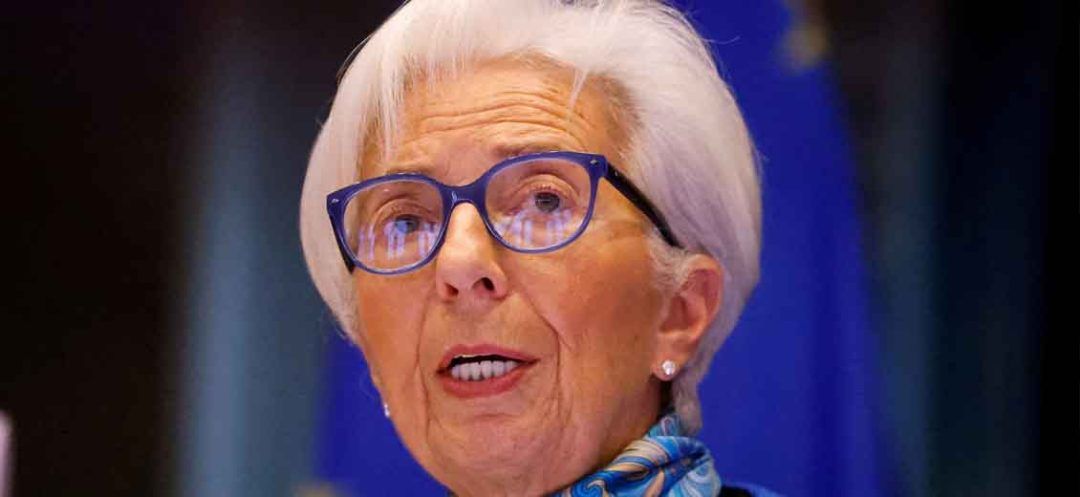
Tensions in the Middle East could lead to an exacerbation of inflation, warned Christine Lagarde, President of the European Central Bank (ECB).
"Tensions in the Middle East and shipping disruptions in the Red Sea could lead to a further rise in inflation rates," she said during a press conference in Frankfurt.
Lagarde warned that heightened geopolitical tensions, particularly in the Middle East, could lead to "higher energy prices and transport expenses in the short term" and "hamper world trade."
Concerning borrowing costs, she said it was still too early to consider rate cuts.
The third consecutive pause since October leaves the ECB's benchmark deposit rate at a record high of four percent, following a historic run of hikes to tame prices that shot up after Russia's war in Ukraine.
The pause was widely expected, but with inflation steadily slowing and the eurozone economy stuttering, investors were hoping Lagarde would give clues on when the bank might start lowering borrowing costs.
But Lagarde gave little away. There was "consensus" at Thursday's meeting that it was "premature to discuss rate cuts," she told reporters.
The ECB believes rates are currently at levels that, "if maintained for a sufficiently long duration, will make a substantial contribution" to returning inflation to the two-percent target.
Financial markets have been betting on rate reductions as early as April, but ECB officials have pushed back against those expectations.
Lagarde herself told Bloomberg television at Davos last week that the first cut would "likely" come only by the summer—and only if the latest economic data supports such a move.
"I stand by what I have said," Lagarde affirmed when asked about the timeline.
The disinflationary process "is working," she added, "but we need to be further along before changing course."
She stressed that the ECB's next moves would be "data dependent," with policymakers keeping a close eye on wage growth and geopolitical risks.
Some analysts said Lagarde had nevertheless left the door open to rate cuts before the summer.
With AFP
"Tensions in the Middle East and shipping disruptions in the Red Sea could lead to a further rise in inflation rates," she said during a press conference in Frankfurt.
Lagarde warned that heightened geopolitical tensions, particularly in the Middle East, could lead to "higher energy prices and transport expenses in the short term" and "hamper world trade."
Concerning borrowing costs, she said it was still too early to consider rate cuts.
The third consecutive pause since October leaves the ECB's benchmark deposit rate at a record high of four percent, following a historic run of hikes to tame prices that shot up after Russia's war in Ukraine.
The pause was widely expected, but with inflation steadily slowing and the eurozone economy stuttering, investors were hoping Lagarde would give clues on when the bank might start lowering borrowing costs.
But Lagarde gave little away. There was "consensus" at Thursday's meeting that it was "premature to discuss rate cuts," she told reporters.
The ECB believes rates are currently at levels that, "if maintained for a sufficiently long duration, will make a substantial contribution" to returning inflation to the two-percent target.
Financial markets have been betting on rate reductions as early as April, but ECB officials have pushed back against those expectations.
Lagarde herself told Bloomberg television at Davos last week that the first cut would "likely" come only by the summer—and only if the latest economic data supports such a move.
"I stand by what I have said," Lagarde affirmed when asked about the timeline.
The disinflationary process "is working," she added, "but we need to be further along before changing course."
She stressed that the ECB's next moves would be "data dependent," with policymakers keeping a close eye on wage growth and geopolitical risks.
Some analysts said Lagarde had nevertheless left the door open to rate cuts before the summer.
With AFP
Read more



Comments